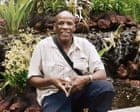
In the wake of personal and communal tragedies, people seek understanding and accountability, prompting an intricate tapestry of responses that reveal as much about human resilience as about systemic shortcomings. Across continents, individuals affected by recent events are advocating for change and answers, underscoring the interconnection of global communities through their shared experiences.
In Jamaica, the family of Delroy Walker, a compassionate British citizen whose life was abruptly ended, is navigating a labyrinth of emotions and bureaucracy in their quest for justice and acknowledgment. Walker, a 63-year-old retiree from Birmingham, was pursuing his dream of settling into a Caribbean haven when tragedy struck. Having moved to Jamaica to build his dream home, Walker’s life was tragically taken by a local tradesman. His bereaved family, left with echoes of disbelief, has voiced concerns about the perceived indifference of UK officials in the handling of their plight and the clarity of Walker’s status as a British citizen deserving of official assistance. Their story resonates with countless others who have faced similar hurdles when personal loss intersects with governmental processes.
Meanwhile, landscapes have shifted in northern China, where record-breaking floods have left a trail of devastation. In recent weeks, images of submerged streets and displaced communities have emerged from Beijing and its surroundings, where intense bouts of rainfall have tested the region’s resilience. The toll is heavy, with at least 70 lives lost, including those in particularly vulnerable situations, like the residents of a care home in Miyun. The gravity of these floods is accentuated by an admission from local authorities about lapses in preparedness. Such acknowledgments, while rare, signify a critical step toward addressing the systemic gaps in disaster management that exacerbate the human toll.
Comforting warmth and camaraderie arise through collective action and accountability. In this spirit, a Chinese official has openly recognized the shortcomings in readiness for these unprecedented weather events. The district of Miyun, having borne the brunt of the deluge, has become a focal point for discourse on improved infrastructure and responsive governance. While floods are not new to the region, this year’s circumstances have renewed calls for robust, resilient planning for the future, emphasizing the universal aspiration to prevent repetition of devastation.
Amid these unfolding narratives, former Hong Kong politician and democracy advocate Carmen Lau finds herself navigating a different landscape of advocacy and self-determination. In the United Kingdom, she has raised concerns about the boundaries of freedom, having been advised by local police to maintain a low profile amid rising tensions related to her political work. This dialogue highlights the delicate balance between personal safety and the right to public expression, a tension familiar to many in politically sensitive contexts worldwide. Lau’s resolve to continue her advocacy speaks to the enduring spirit of those who seek to challenge restrictions and seek broader dialogues around freedom and human rights.
Together, these stories weave a meditative reflection on the nature of adversity and the profound strength discovered within varied human experiences. Across continents, individuals and communities are confronting the complexity of their circumstances through determined advocacy, resilience in the face of natural and systemic challenges, and a shared commitment to uncovering truths and building more responsive, compassionate systems. These narratives remind us of the collective journey toward healing and understanding, driven by unwavering hope for a future where accountability and empathy guide our shared path.
Source: {link}
